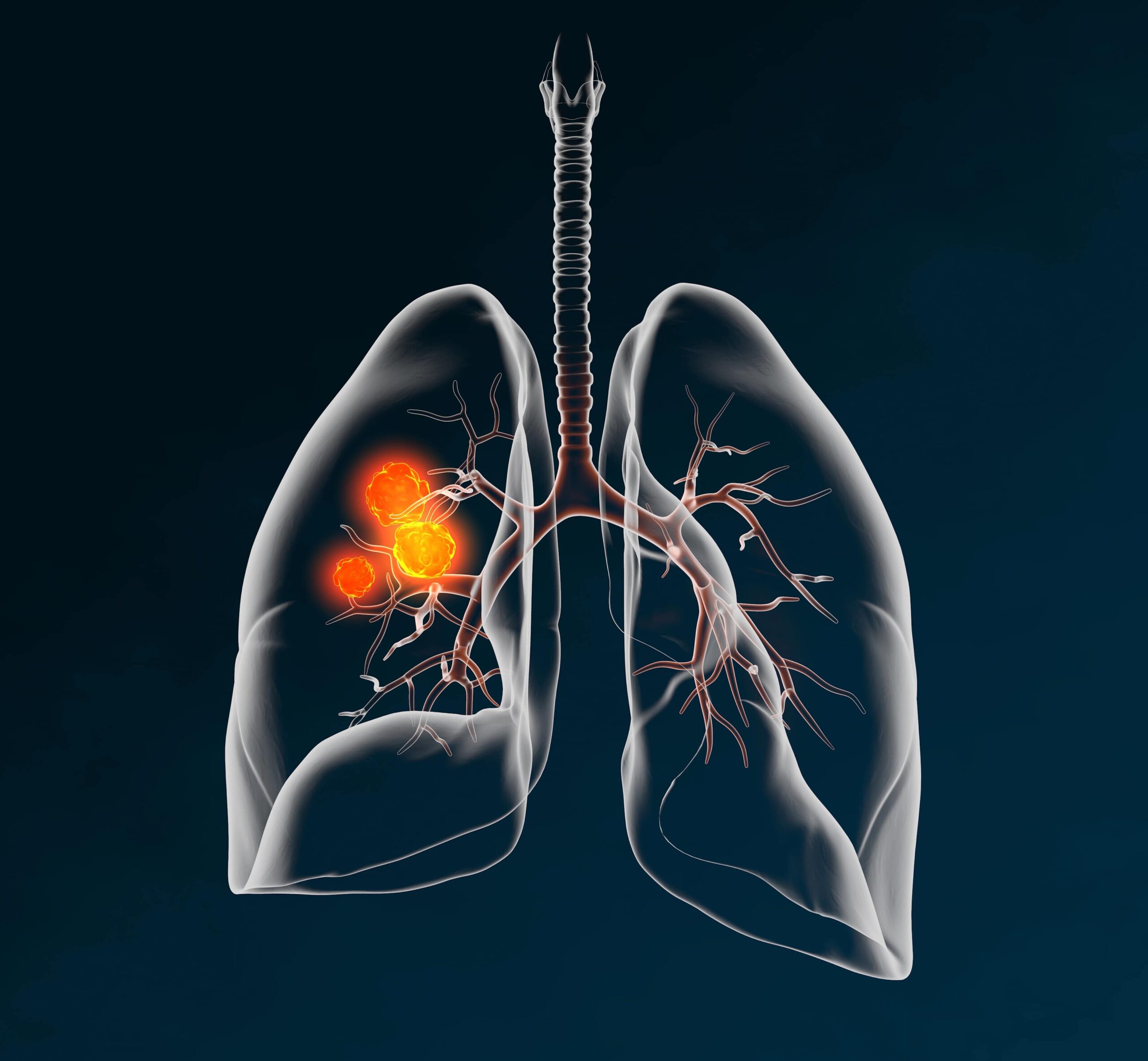A new contender in the fight against lung cancer has emerged, with strong clinical trial results for ivonescimab, a bispecific antibody from partners Akeso and Summit Therapeutics. The drug, which has been approved in China, has remarkably outperformed Merck’s Keytruda® (pembrolizumab) in a head-to-head study. The Phase III HARMONi-2 trial results, presented at the 2024 World Conference on Lung Cancer (WCLC), suggest that this new treatment could become a game-changer for patients with non-small cell lung cancer (NSCLC).

Setting a New Standard in Lung Cancer Treatment
Ivonescimab targets both programmed cell death protein 1 (PD-1) and vascular endothelial growth factor (VEGF). Clinical trial data showed that it resulted in a 49% reduction in the risk of disease progression or death when compared to treatment with pembrolizumab. Caicun Zhou, director of oncology at the Shanghai Pulmonary Hospital, presented the data at the WCLC and described the study results as a major step forward. “The findings from the HARMONi-2 study support the use of ivonescimab as a promising first-line treatment option for patients with PD-L1-positive advanced NSCLC, potentially offering a new and effective choice for managing this challenging disease,” he said. “These results highlight ivonescimab’s potential as a new standard of care.”
In the study, patients treated with ivonescimab experienced a median progression-free survival (PFS) of 11.14 months, 5.32 months longer than those treated with pembrolizumab. This benefit was consistent across various patient subgroups, including those with squamous and nonsquamous tumors, high and low programmed cell death ligand 1 (PD-L1) levels and brain metastases.
The Mechanism Behind the Success
Ivonescimab’s superior performance is attributed to its dual targeting of PD-1 and VEGF. Unlike other treatments that combine separate drugs for each target, ivonescimab binds to the tumor’s surface, increasing its effectiveness while minimizing the risks associated with VEGF inhibitors, such as bleeding in the lungs.
The trial also demonstrated that ivonescimab was generally well-tolerated, though it did result in higher rates of some VEGF-related side effects such as proteinuria and hypertension. However, there were no severe adverse events that led to treatment discontinuation, and the overall safety profile was comparable to pembrolizumab’s.
Challenges and the Road Ahead
Ivonescimab’s success raises the question of whether it can dethrone pembrolizumab as the dominant treatment for NSCLC. Pembrolizumab, especially when combined with chemotherapy, remains a formidable opponent. However, ivonescimab’s performance as a monotherapy is already in the same league as pembrolizumab combined with chemotherapy. Ivonescimab showed a median PFS of 11.14 months, similar to the 11.1 months observed in the updated analysis of the KEYNOTE-189 trial results for pembrolizumab and chemotherapy in patients with PD-L1-high nonsquamous NSCLC.
However, cross-trial comparisons can be tricky. Patient characteristics and other factors vary between studies, so the true efficacy of ivonescimab will need to be confirmed in broader trials. Additionally, the current study has not yet reported overall survival (OS) data, a key factor in determining the drug’s long-term success.
Next Steps for Ivonescimab
The HARMONi-2 trial was conducted solely in China, where Akeso is based. Summit, headquartered in Miami, Florida, is gearing up for the next phase of ivonescimab’s development. Plans are underway for the HARMONi-7 trial, a multi-regional Phase III trial that will compare ivonescimab monotherapy with pembrolizumab monotherapy in patients with metastatic high PD-L1 NSCLC. Bob Duggan, Summit’s executive chairman, expressed confidence in the drug’s future, stating, “The key was willingness to go head-to-head with [Keytruda] and to be superior, too; that takes courage, but what’s the alternative?”
While much remains to be seen, ivonescimab may be on the verge of becoming a cornerstone drug in cancer immunotherapy. With additional trials in the works and positive momentum building, the drug could change the landscape of lung cancer treatment, providing new hope for patients worldwide.
Did you enjoy this blog post? Check out our other blog posts as well as related topics on our Webinar page.
QPS is a GLP- and GCP-compliant contract research organization (CRO) delivering the highest grade of discovery, preclinical and clinical drug research development services. Since 1995, it has grown from a tiny bioanalysis shop to a full-service CRO with 1,100+ employees in the US, Europe and Asia. Today, QPS offers expanded pharmaceutical contract R&D services with special expertise in pharmacology, DMPK, toxicology, bioanalysis, translational medicine, cell therapy (including PBMCs, leukopaks and cell therapy products) and clinical development. An award-winning leader focused on bioanalytics and clinical trials, QPS is known for proven quality standards, technical expertise, a flexible approach to research, client satisfaction and turnkey laboratories and facilities. Through continual enhancements in capacities and resources, QPS stands tall in its commitment to delivering superior quality, skilled performance and trusted service to its valued customers. For more information, visit www.qps.com or email info@qps.com.







